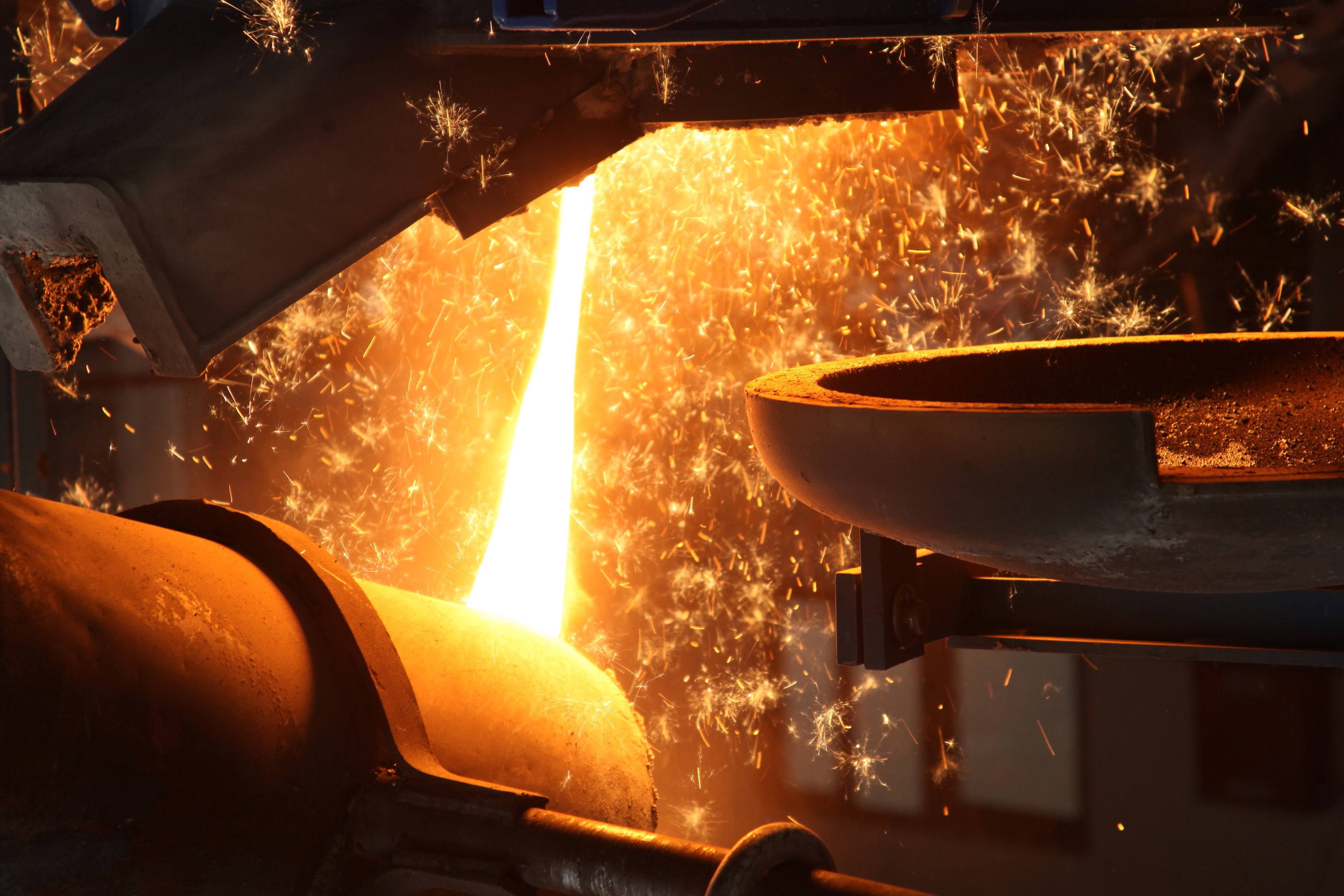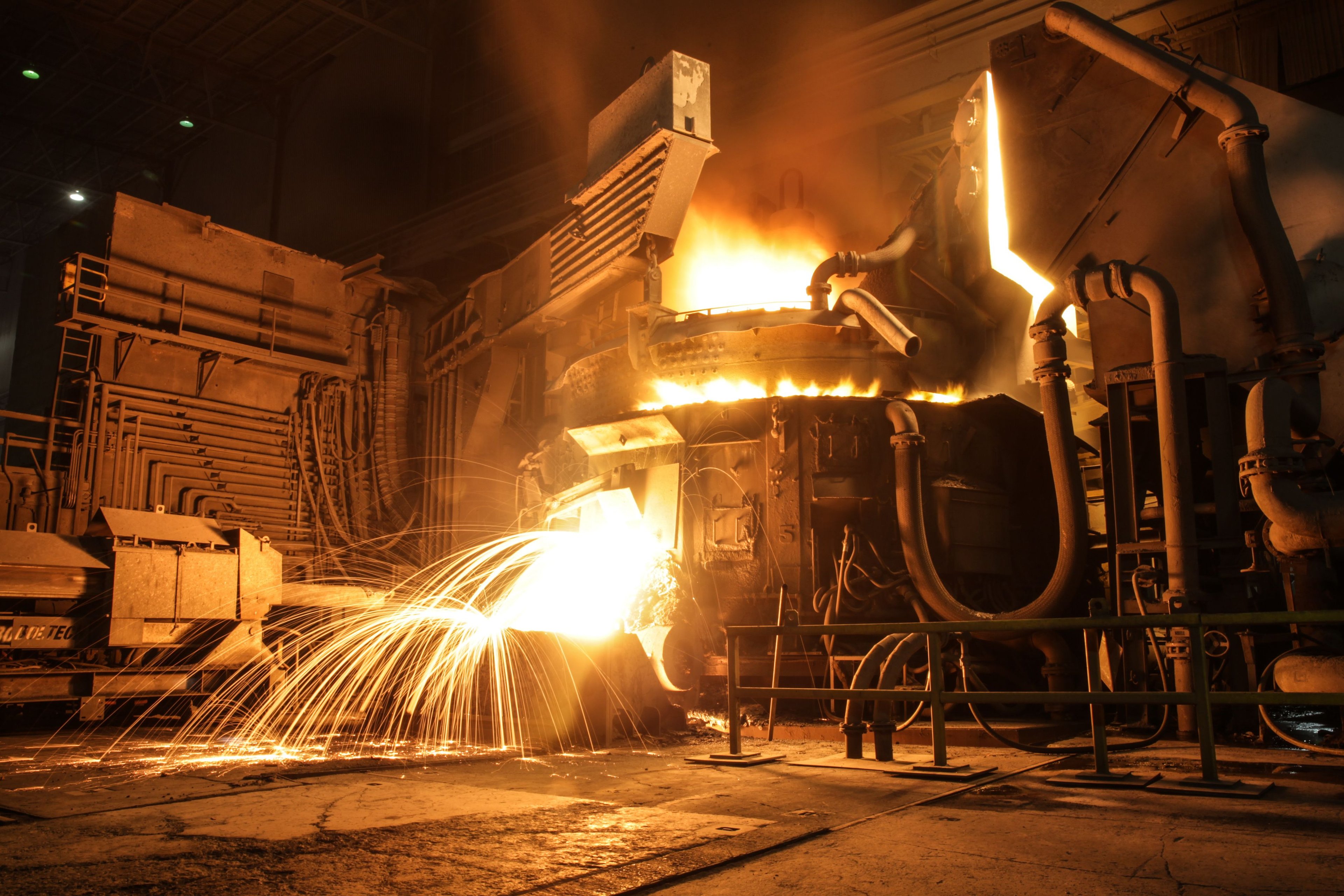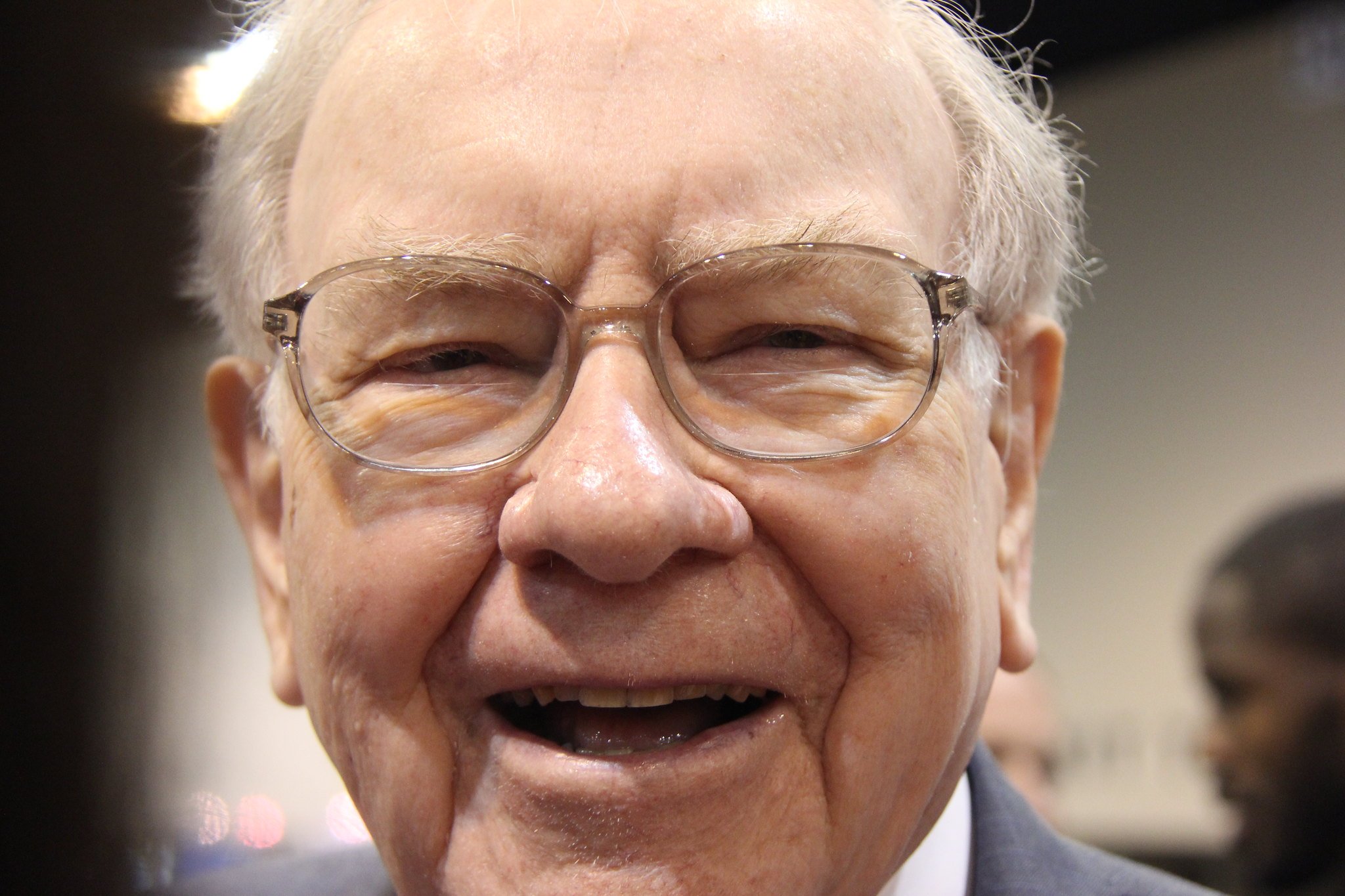During Nucor's (NUE +1.34%) third-quarter-2019 earnings conference call, Timna Tanners from Bank of America Merrill Lynch asked if the steel giant might change its capital spending plans in 2020. CEO John Ferriola and CFO Jim Frias both provided answers to the question. They were pretty clear about how Nucor thinks about capital spending, and what they said provides a lot of insight about Nucor. Here's the breakdown.
A long-time caller
If you listen to Nucor's quarterly conference calls on a regular basis, the name Timna Tanners is one you'll recognize. She's always on the calls, always asking insightful questions, and clearly has a good rapport with the company's management team. During the third-quarter conference call, she asked what would seem to be an innocuous question about 2020, trying to see if an industry downturn would lead the steel company to pull back a little on its capital spending plans. The answer she got, a back-and-forth between the CFO and CEO, led her to say later, "I guess I struck a chord."

Image source: Getty Images
While the response was strong, there was no malice or anger. It was just that Tanners had hit on something so core to Nucor's business model that its top brass felt compelled to emphasize to her, and anyone else who might be listening, that Nucor does things differently.
Frias, the CFO, initially commented that "we rely a lot on the divisions to help us forecast when capex is going to happen." This was to help explain why some of the 2019 capital spending was expected to slip into 2020.
But what it actually says is much deeper. Nucor has a highly decentralized business model. Each plant is responsible for its own success, and given the autonomy to get things done. So while plans aggregate at the highest level, all of the plans are not made or executed at the highest level. Things move around, and that's OK -- it's just how the model works. Once you break earth on a big project, things don't always move as smoothly as expected.
The CEO gets his say
And then Ferriola chimed in. He took a big-picture view, specifically speaking to the idea that Nucor would shift capital spending in the face of an industry downturn.
I want to be really empathic about this, OK? Listen, we're not reacting to any changes in the market. We're in a cyclical business. We don't react. We don't change on our strategic plan based upon changes in the marketplace.
At first blush that might seem counterintuitive. Why wouldn't a highly cyclical business like a steel company adjust to a downturn? The answer is that Nucor has always looked at the long term, because it knows that upturns follow downturns and downturns follow upturns. You have to look across the cycles or you will always be reacting and never really planning for the future. In fact, if Nucor put money into the sector only when times were good, it would likely end up bringing new facilities online when the market was peaking, or, worse, already in a downturn. That's not a great business plan.
Ferriola went on to add:
In fact, if anything, we would do just the opposite of what you say, we tend to invest more and will focus on growing our company during the downturns, that's always been our philosophy. We invest in the downturns, to come back into the upturn stronger.
This is a huge statement about Nucor's long-term view. It wants to build up its business when everyone else is pulling back so it can come out of a downturn a stronger company. That allows Nucor's financial results to have higher highs and, just as important, higher lows. In other words, the company wants to pull in more revenue and produce greater earnings during the next upturn or downturn than the one it might currently be in. The goal is for overall performance through the cycle to trend higher over time.
NUE Financial Debt to Equity (Quarterly) data by YCharts
But you can't invest through the cycle if you don't have a huge amount of discipline. That discipline shows up in many ways at Nucor, but one of the most important is on the balance sheet. Nucor's financial debt to equity ratio of 0.275 times is better than that of any of its closest peers. It covers its trailing interest costs by 20 times over, far outdistancing competitors. And while it doesn't have the best current ratio, a measure of how well a company can cover near-term expenses, at 3.3 times there's absolutely no need to worry about Nucor on this front.
So Nucor thinks long-term and has the financial wherewithal to back up its long-term plans. One without the other doesn't work. Which brings up the last comment from the CEO:
If we didn't invest and grow our company during the last recession, we would not have seen the record year that we had in 2018. So it's the work that we do during those downturns that allow us to have the record years and we'll continue to do that.
An import chord
The quick answer to Tanners' question would have been a simple "no." But the concept of pulling back on growth spending during a downturn is so against the grain at Nucor that "no" wasn't enough. The company's ability and willingness to invest in its business in good -- and, equally important, bad -- times is one of the key things that separates it from the pack.
If you own Nucor or are looking to buy it, Tanners' question revealed one on the secret ingredients to Nucor's long-term success. In fact, the answer she elicited was far more important than what dollar figure the company might spend in 2020. How Nucor looks at capital spending is a vital part of the model that has allowed it to become one of the best performing steel companies in the United States, and perhaps the world. Long-term investors should take careful notes here, because it says a lot about Nucor and the companies it competes against.







